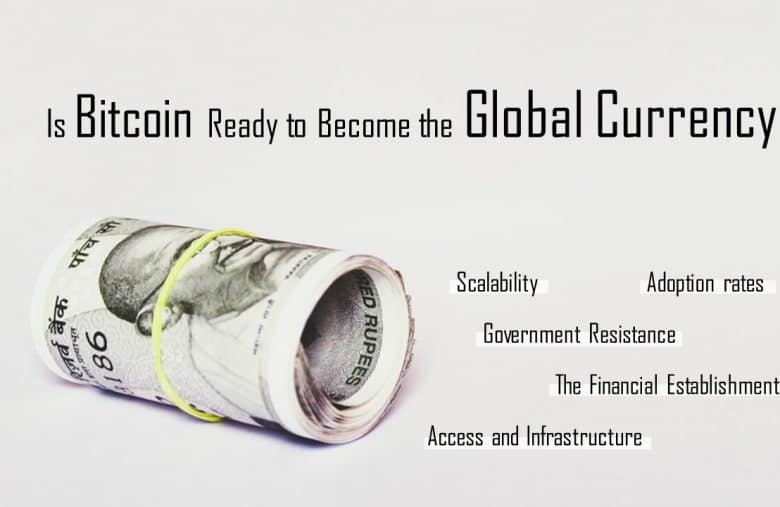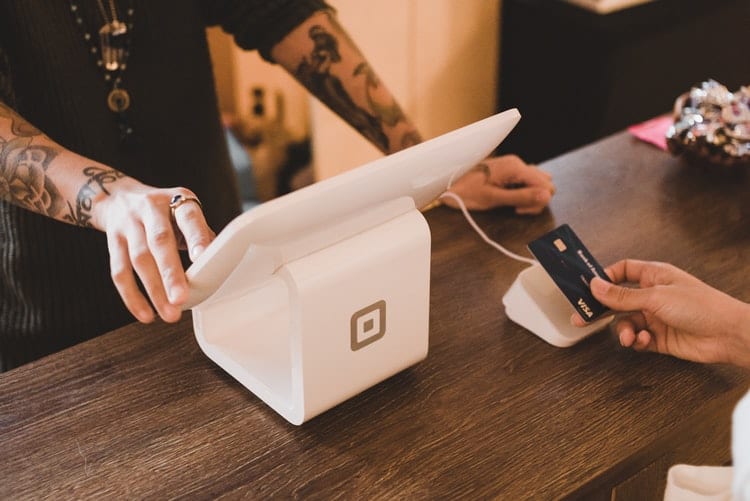Is Bitcoin Ready to Become the Global Currency ?

Is Bitcoin Ready to Become the Global Currency ?
For years now, various people have been saying Bitcoin will soon become the global currency. So, when is it actually going to become a reality?
It’s a very complicated question, but there are some key things that need to occur before Bitcoin can take over the financial world and before the BTC price can become stable. Here are 5 barriers holding Bitcoin back from global dominance, and some things that must happen to get past each one.
5 barriers holding Bitcoin back from global dominance
Barrier 1: Scalability
The key thing holding Bitcoin back from becoming the global standard currency is scalability. Unfortunately, when Bitcoin starts to get too many people using its network, it begins to break down and become unusable. Fees and transaction costs skyrocket until it’s no longer feasible to use the network at all.
This is obviously a major roadblock on Bitcoin’s path. The maximum number of transactions that the Bitcoin network can handle is around 3-4 transactions per second. That’s a minuscule number of the global scale of things. In order to become the global currency, Bitcoin would need to scale to thousands or even millions of transactions per second.
Luckily for Bitcoin, there is a light on the horizon for scalability. There are many different solutions in the pipeline that could help Bitcoin reach global scalability. They range from changing the Bitcoin blockchain to allow for more transactions, to “off-chain” solutions that allow most transactions to happen entirely separately from the Bitcoin network.
Scalability is the number 1 barrier to global adoption for Bitcoin and it will need to be solved before any more progress is made. But, there are other barriers, too.
Barrier 2: Adoption rates
Even if Bitcoin scalability improved to adequate levels, it wouldn’t necessarily mean it would take over the world. The number of users would still need to increase exponentially. For that to happen, the benefits of Bitcoin would need to lure them in.
Currently, Bitcoin adoption rates are quite low. This is because there really isn’t that much you can do with the currency, compared to a regular credit card. The number of products you can buy online is limited, the number of companies that take Bitcoin as payment is growing, but still limited.
To bring in hundreds of millions of new people to start using the Bitcoin network daily will require a huge boost in the usability of Bitcoin. New applications and ways to spend Bitcoin and other cryptocurrencies will need to be developed. This is possible, cryptocurrency is a very innovative space, and the technology is developing in fascinating ways every year.
Barrier 3: Access and Infrastructure
Bitcoin is entirely reliant on having internet access and smart devices. These are becoming widespread around the world, but not everywhere is fully connected. If Bitcoin is going to become the global currency, it will need to get developing countries on board, as they have the greatest incentive to adopt Bitcoin. Physical infrastructure limitations can hold Bitcoin back in many regions around the world.
Barrier 4: The Financial Establishment
The global financial elite, also known as banks and institutional investment firms, have a strong grip on the way of how finance is done on a global scale. Not all of these institutions are keen on Bitcoin taking over. Having a decentralized currency running the global economy would wreak havoc with their currency business models, investments and profits.
For example, banks currently make huge profit margins on international transfers. They charge big commissions and fees for moving money overseas and converting between currencies. If Bitcoin was the global currency, this entire process would become obsolete, and banks would miss out on billions of dollars worth of easy profits. Banks and investment firms will likely cause resistance to widespread Bitcoin adoption if it messes with their interests.
If Bitcoin is to go global, it will also need to get the financial backing of many of these institutions. To get to the scalability, usability, and infrastructure levels required, Bitcoin will need plenty more investment. Most of this will have to come from the big institutional investment companies, as that’s where most of the big money in the world is.
Barrier 5: Government Resistance
Worldwide Bitcoin adoption would also mess up the plans and workings of governments. The world order has been built and refined over the decades and is an intricately balanced system of fiat currencies, regulators and central banks. Bitcoin throws a massive spanner in the works.
Governments ultimately choose the rules when it comes to finances. They get to decide how Bitcoin can be used, and how it is taxed. Government regulation is already a massive sticking point for Bitcoin. Assuming no massive global revolution is going to happen if Bitcoin is to go global, it will need the blessing of many governments and regulators around the world.
Another barrier to people being able to access the Bitcoin network is if it outright getting banned by governments. Countries like China have cracked down on cryptocurrency use. Of course, it’s going to be difficult for Bitcoin to become the global financial standard if it’s not even legal for huge sections of the global population. What’s more, China is introducing its own cryptocurrency to compete with Bitcoin. This adds to Bitcoin’s problems again.

A More Likely Scenario
Bitcoin probably isn’t going to become the main global currency anytime soon. The barriers mentioned here are just too high to overcome in the short term. A much more likely scenario is that Bitcoin is slowly adopted more and more as the technology develops, better applications are developed, and governments and investors learn how to treat the cryptocurrency.
This process probably won’t look like a global revolution. It will likely happen without most of us even realizing it. Instead of suddenly using Bitcoin for everything, we’ll subtly notice that some financial applications are changing, international payment systems become better, and cryptocurrency finds its way into more and more of our lives.
Bitcoin is certainly a revolutionary technology that can change the world, but it’s probably not going to be a hostile takeover, and that’s likely a good thing.
CBA MeetUp
https://cbaofficial.com






